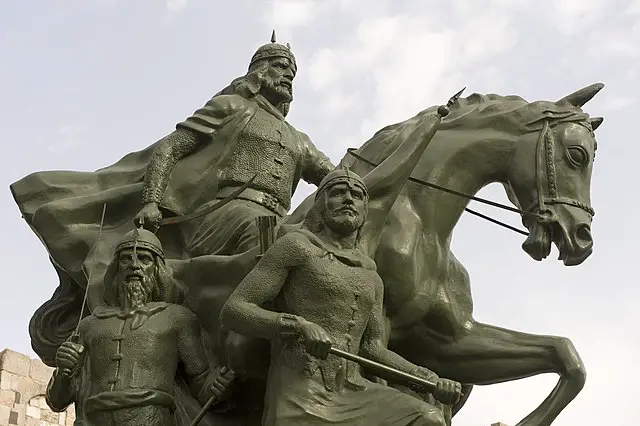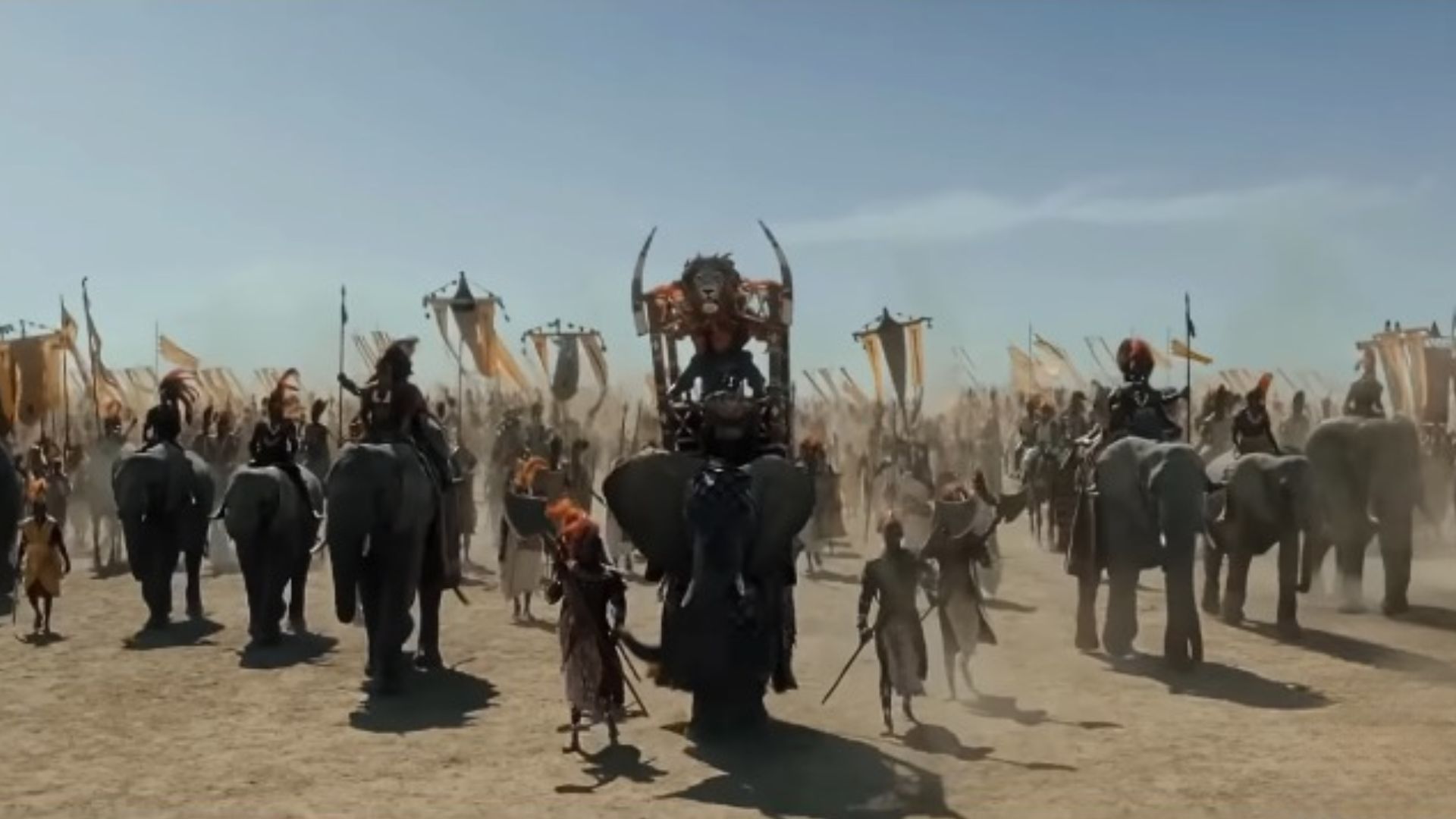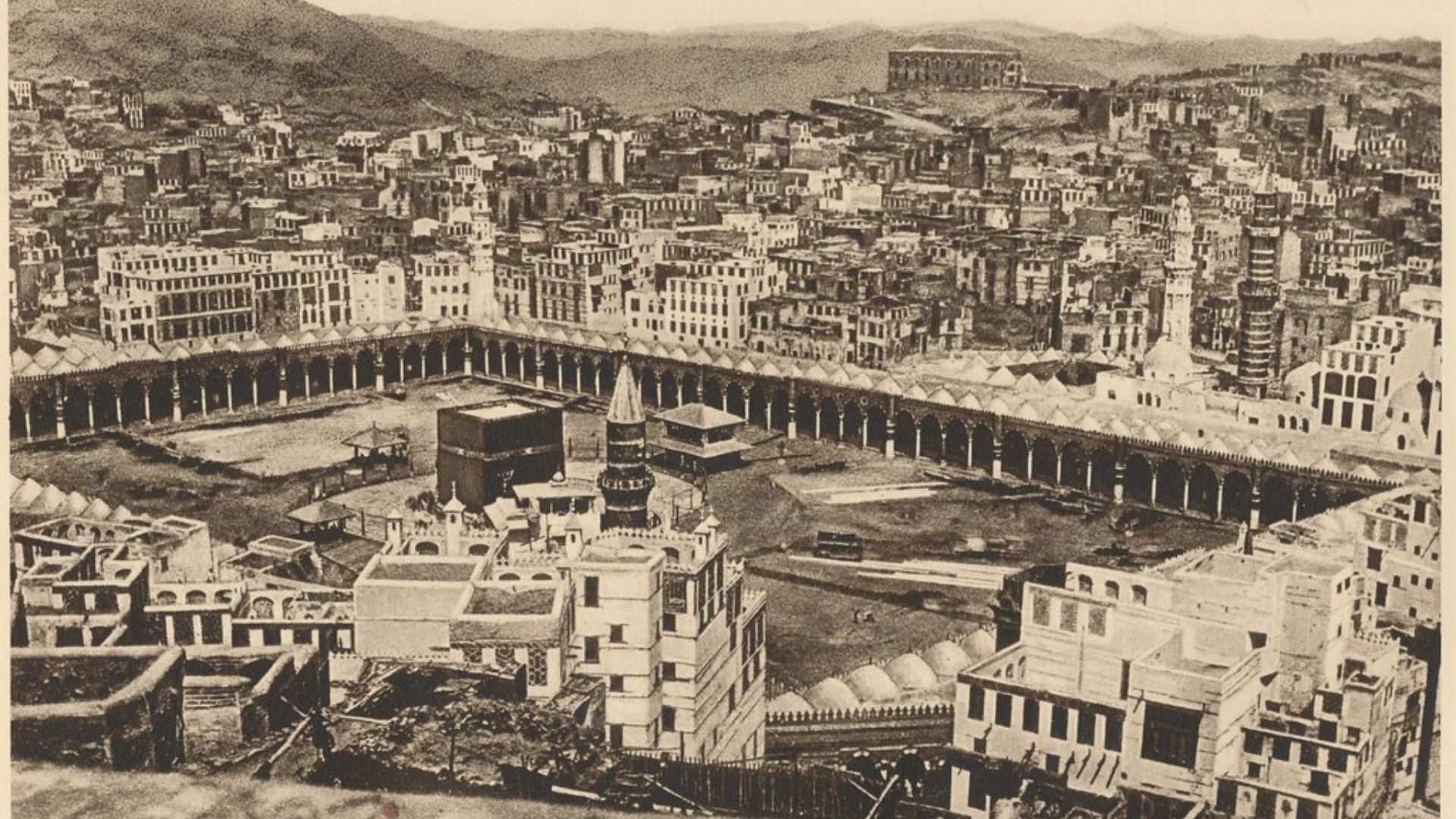The Muslim hero Salahuddin Ayyubi is most known for driving the Crusaders out of the holy city of Jerusalem (Al-Quds). His opponents as well as Muslims admired him for his valour and charity. He had a horse and money at the time of his death, but there was not even enough money to bury him. He truly embodied what a great hero and a committed Muslim should be.
In Tikrit, Iraq, Sultan Salahuddin Ayyubi, also known as Saladin, was born in 1137. He is recognised as a real Muslim hero who drove the Christians out of Jerusalem. He is revered not only for his bravery, valour, and genius as a soldier, statesman, and military commander but also for his patience, humanitarianism and fairness.
He was the Ayyubid dynasty’s founder. The title of “Custodian of the Two Holy Mosques” was originally bestowed upon him by the Islamic world. He is referred to as the de facto Caliph of Islam by several experts. Egypt, Syria, Upper Mesopotamia, the Hejaz, Yemen, and other regions of North Africa were all part of his kingdom at its height.
Accepting the Loss of Jerusalem Saved Thousands of Lives
The strong and sizable army of Sultan Salahuddin besieged Jerusalem after handing the Christian soldiers a devastating defeat at the Battle of Hattin. The imminent Muslim army invasion of the city was extremely obvious. Leader of the defence of the country, seeing the out-of-control scenario, Balian met Sultan Salahuddin with an envoy.
While negotiating, Balian threatened the Sultan that if his demands for an unconditional surrender were not granted, he would kill all 5000 of the city’s Muslims and demolish all of its Islamic landmarks. By doing this, Balian made it plain that he was not at all worried about what would happen to the Christians living in the city because Sultan’s soldiers would soon have taken over the entire city.
Sultan Salahuddin, on the other hand, was a sincere adherent of the Prophet Muhammad (PBUH) and wished to minimise casualties. He was a genius at conflict resolution; rather than expressing his fury, he showed mercy. Following considerable deliberation, it was decided that the Christians would pay a very minimal sum and be allowed to leave the city.
The city’s whole Christian population was also spared from the fury of the Muslim army that would soon overrun it by this act of kindness, which also saved the lives of 5000 Muslims.
Accepting Jerusalem’s Peaceful Surrender
People’s memories of the atrocities committed on Muslims after the first crusade were still fresh. The First Crusaders were characterised as mass killers by the historian who was Christian. Tyreman claims that the killing of the Muslims of Jerusalem was “a juxtaposition of severe violence and anguished faith” in his book “God’s War: A New History of Crusades.” Other historians have provided instances where horses were seen swimming in the blood of Muslims. According to Tyerman, “The carnage continued for days; Muslims were killed without regard for their religion, and Jews who had sought safety in their synagogue died when the Crusaders burned it down.” Just 88 years ago, all of these things happened, and the entire Christian population was incredibly terrified about whether Sultan Salahuddin would follow his word or not. Sultan Salahuddin Ayyubi maintained his pledge because he was a devout Muslim and a man of his word. At the moment of the capitulation, nobody was hurt, and Jerusalem was completely abandoned peacefully.
Paying enemy soldiers’ ransom
According to the terms of the surrender agreement, the Christian army was required to provide the Sultan with a ransom payment of 30,000 dinars. After paying this sum, the elite troops departed the city. However, the majority of the underpaid soldiers were unable to cover the ransom. Without any hope left for them, their relatives appealed to the Sultan to beg for mercy. In his book “Saladin: The Politics of the Holy War,” Malcolm Cameron Lyons claims that Sultan Salahuddin personally paid the ransom money for hundreds of Christians and gave them the option to flee the city. Muslim historians point to a far higher number and believe Sultan was the one who paid the ransom.
Release of War Prisoners
His brother Al Adil liberated 1000 Christians who were about to become his slaves after witnessing Sultan’s charity toward thousands of Christian soldiers. When Heraclius and Balian, two prominent Christian leaders, begged the Sultan for mercy, the kind Sultan released 1200 additional individuals without demanding payment. A further 1000 prisoners were released at Muzaffar al-Din Ibn Ali Kuchuk’s request. Additionally, Sultan Salahuddin commanded that all the elderly individuals who were unable to pay the ransom to be set free and permitted to leave the city.
In his study work titled “Saladin’s Christian Hostages and Prisoners: Hangman or Gentleman?,” Filippo Donvito claims that The Sultan pardoned over 20,000 destitute Christians who couldn’t afford the price and let them leave the city. This generous deed led to the conversion of thousands of Christians to Islam.
Performing this conduct was unthinkable in the 12th century. One of the numerous justifications for referring to Sultan Salahuddin as a champion of human rights is the fact that this deed of generosity is clearly documented in historical accounts.
Courtesy for Women
If we consider the circumstances of the 12th century, we can claim that women’s status was extremely poor and that it deteriorated during times of conflict. After their defeat, the majority of the women who belonged to the losing side were sold into slavery. However, Sultan Salahuddin Ayyubi was also going to make history in this area.
The pious Muslim Sultan Salahuddin Ayyubi showed unique respect for ladies by allowing many of the city’s nobility to emigrate without having to pay a ransom, demonstrating this respect. For instance, a Byzantine queen who had adopted a monastic lifestyle in the city was permitted to travel beyond it with her entourage and companions. Sibylla, the captive King Guy’s wife and the queen of Jerusalem was released with full dignity.
Safeguarding the People Departing the City
The Sultan’s army would defend the Christians, but this was never stated in the surrender deal. Sultan, however, gave orders to his army to defend Christians fleeing Jerusalem until they reach a safe location. The Sultan’s adversaries have even since hailed this deed.
Keeping the Church of the Holy Sepulchre standing
Some of Sultan Salahuddin’s advisors advised him to burn the Church in order to put an end to all Christian interests in Jerusalem when he visited the city following its capitulation. But Sultan was a man who respected all religions, and he recalled to his advisers the fact that Hazrat Omar (RA), the second correctly guided Caliph of Islam, had reminded them of the importance of religious tolerance.
Sultan eventually refrained from destroying the Church of the Holy Sepulchre and provided future generations with a wonderful example of religious tolerance.
No property theft or arson
Setting intentionally on fire someone else’s property is called arson. In those days, it was a very frequent practice for the winning troops to set fire to the homes and other assets of the losing side. Additionally prevalent was looting. But none of these crimes was perpetrated by Sultan Salahuddin’s forces when they entered the city.
Religious Liberty
After being freed by Hazrat Omar, Jerusalem became an important religious centre for all three global religions (RA). All religions were allowed to practise their religion freely. However, after the First Crusade, this practice of religious freedom was restricted. The Copt Christians were forbidden from praying by the Crusaders.
Sultan Salahuddin introduced numerous changes to the city’s religious freedoms. He permitted the Syriacs and Orthodox Christians to stay and practise their respective religions. The Crusader kingdom of Jerusalem forbade the Copts from entering the city because they were seen to be heretics and atheists, but the Sultan permitted them to enter without paying a price and treated them as his own people. The Coptic priests regained control of the houses of worship that had previously been seized by the Crusaders. The Church of the Holy Sepulchre and other Christian sites were open to Copts as well. The sacred sites in Jerusalem were open to the Christians from Abyssinia without charge.
Conclusion
According to the aforementioned remarks, Sultan Salahuddin Ayyubi supported human rights. He was a man who was decades ahead of his time and who taught people the true meaning of forgiveness and mercy. He is one of the most well-known Sultans in human history thanks to his outstanding humanitarian efforts. Because of his tolerance for Christians, he is quite well-liked in that community as well.
Read more enlightening blogs and articles here.
Follow us on Social media for Daily Islamic reminders.









